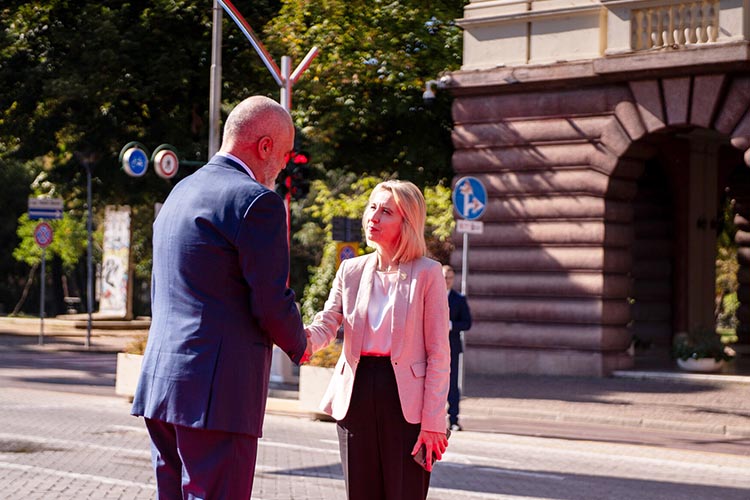EIB Global is intensifying its support for the Western Balkans in green transition, digitalisation, and connectivity, aiding the region’s alignment with the EU. EIB Vice-President Czerwińska reaffirmed the Bank’s commitment to the Western Balkan region’s EU enlargement and economic convergence. In 2023, EIB Global pledged over €700 million for sustainable regional projects.
At the Berlin Process Leaders’ Summit in Tirana, Czerwińska highlighted the Bank’s dedication to enhanced connectivity, green and digital transformation, and the strengthening of education and health sectors. Supporting the EU’s Economic and Investment Plan for the Western Balkans, EIB Global will amplify its role in the new Growth Plan for the region, especially under the Just Transition Initiative.
Czerwińska said, “Our unwavering support for the enlargement process leads to increased connectivity, a seamless green transition, tapping into the digital agenda, and fortifying education and health systems. Since 2009, the EIB has channelled nearly €11 billion into the Western Balkans, backing trans-European energy schemes and SMEs, thus enhancing the region’s ties with the EU.”

Collaborating with the European Commission and the Western Balkans Investment Framework (WBIF), EIB Global champions sustainable ventures. For 2023, commitments include a €100 million credit line for North Macedonian SMEs focusing on energy efficiency and renewables.
She added, “There’s consensus on improving governance, embracing digital transition, and accelerating renewables. Through collective efforts, like the Berlin Process, we aim to expedite the region’s EU accession.”
In 2023, EIB Global earmarked €120 million for Sarajevo’s transport modernisation and a Serbian road project, boosting regional connectivity and economic ties. Via EIB Global, the Bank’s external arm, support continues for pivotal regional infrastructure, such as rail networks in Albania, North Macedonia, Serbia, and road projects in Bosnia and Herzegovina. The EIB’s commitment since 2009 totals nearly €11 billion, aimed at infrastructure, jobs, innovation, and SMEs in the Western Balkans.